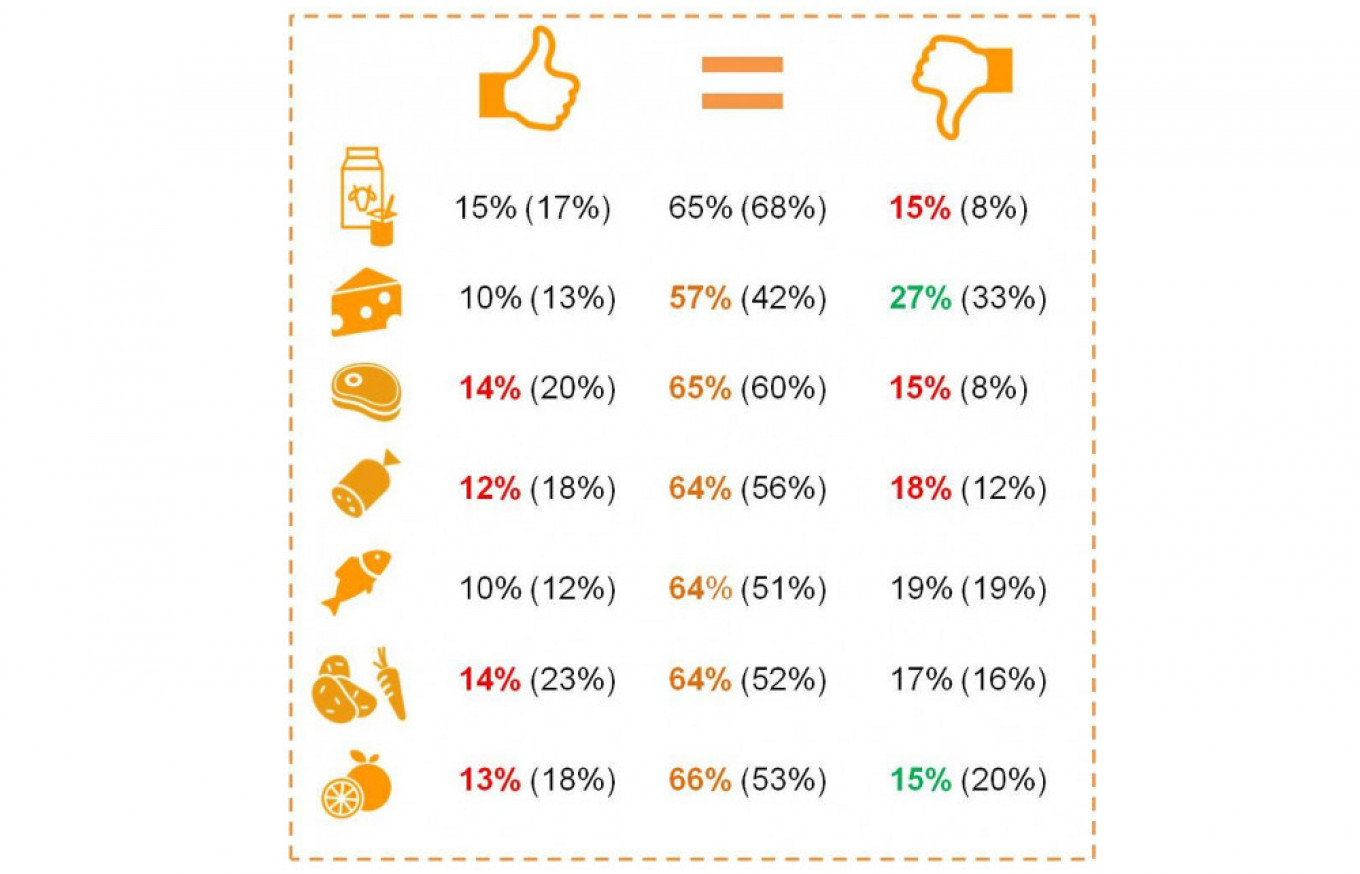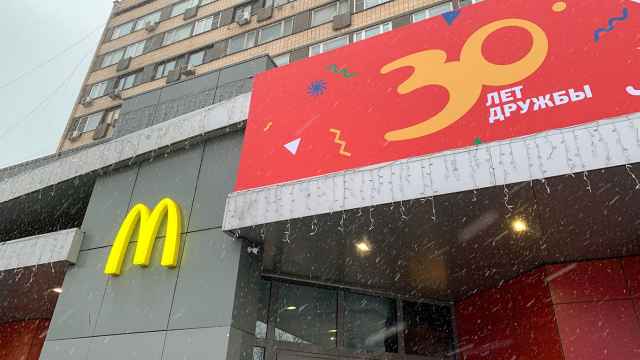Most Russians have learned to live with a ban on foreign food imports introduced three years ago, according to a recent poll.
Two-thirds of those polled by the Romir research company in June said they did not find that the quality of products that fall under a Russian import ban had deteriorated in the past year. The results of a similar survey conducted in late 2015 showed roughly half of respondents thought so.
Russia introduced an import ban on a range of foods in August 2014 targeting products like dairy and meat from Western countries, in response to sanctions imposed on the country over its involvement in Ukraine. The measure should have been a boon to domestic producers.

Russians even seem to have adjusted to substitutes for imported cheese — a product that, in Russia, many have come to associate with palm oil rather than milk. Twenty-seven percent of respondents found issue with the domestic substitutes on store shelves. In 2015, that number was 33 percent.
Residents of cities with a population of 100,000 to 500,000 people were most unhappy with the products on offer. The cheese critics were mostly found in Russian cities with populations of one million or higher.
“It can be said that the period of major shocks caused by the change in brands and quality of new goods are behind us. Russians are gradually getting used to the new goods” Romir concluded.
The survey polled 1500 people in all Russian regions.
A Message from The Moscow Times:
Dear readers,
We are facing unprecedented challenges. Russia's Prosecutor General's Office has designated The Moscow Times as an "undesirable" organization, criminalizing our work and putting our staff at risk of prosecution. This follows our earlier unjust labeling as a "foreign agent."
These actions are direct attempts to silence independent journalism in Russia. The authorities claim our work "discredits the decisions of the Russian leadership." We see things differently: we strive to provide accurate, unbiased reporting on Russia.
We, the journalists of The Moscow Times, refuse to be silenced. But to continue our work, we need your help.
Your support, no matter how small, makes a world of difference. If you can, please support us monthly starting from just $2. It's quick to set up, and every contribution makes a significant impact.
By supporting The Moscow Times, you're defending open, independent journalism in the face of repression. Thank you for standing with us.
Remind me later.







